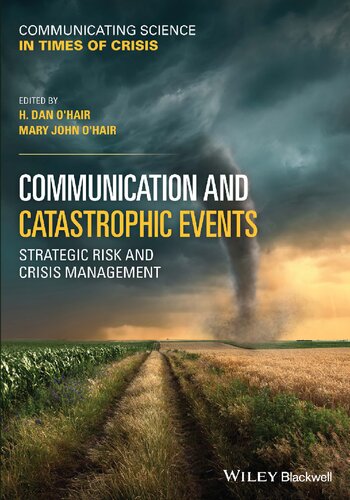

Most ebook files are in PDF format, so you can easily read them using various software such as Foxit Reader or directly on the Google Chrome browser.
Some ebook files are released by publishers in other formats such as .awz, .mobi, .epub, .fb2, etc. You may need to install specific software to read these formats on mobile/PC, such as Calibre.
Please read the tutorial at this link: https://ebookbell.com/faq
We offer FREE conversion to the popular formats you request; however, this may take some time. Therefore, right after payment, please email us, and we will try to provide the service as quickly as possible.
For some exceptional file formats or broken links (if any), please refrain from opening any disputes. Instead, email us first, and we will try to assist within a maximum of 6 hours.
EbookBell Team

4.8
104 reviewsAn authoritative compendium of new research findings and case studies in the application of communication theory during catastrophic events
Communicating Science in Times of Crisis: Communication and Catastrophic Events addresses the practical application and research implications of communication theory in the context of man-made and natural catastrophes. Bringing together contributions by leading experts in crisis management and strategic communication, this timely collection of resources links scientific issues with public policy while discussing the challenges and opportunities for using communication to manage extreme events in the evolving media landscape of the 21st century.
In this second volume of the Wiley-Blackwell Communicating Science in Times of Crises series, 15 substantial chapters explore a varied range of catastrophic conditions, such as mass violence incidents, disease outbreaks, catastrophic mudslides, cascading and simultaneous disasters, extreme weather events, diffusion of misinformation during crises, students traveling internationally during a global health crisis, and more. Each chapter focuses on a particular issue or concern, revealing the difficult choices that confront academics and practitioners across communication disciplines and presenting original frameworks and models alongside ongoing research programs.
Available as a standalone book or as part of a two-volume set, Communicating Science in Times of Crisis: Communication and Catastrophic Events is essential reading for scholars, researchers, practitioners, and advanced students in the fields of crisis communication, risk and emergency management, disaster studies, policy management, social media communication, and healthcare communication.